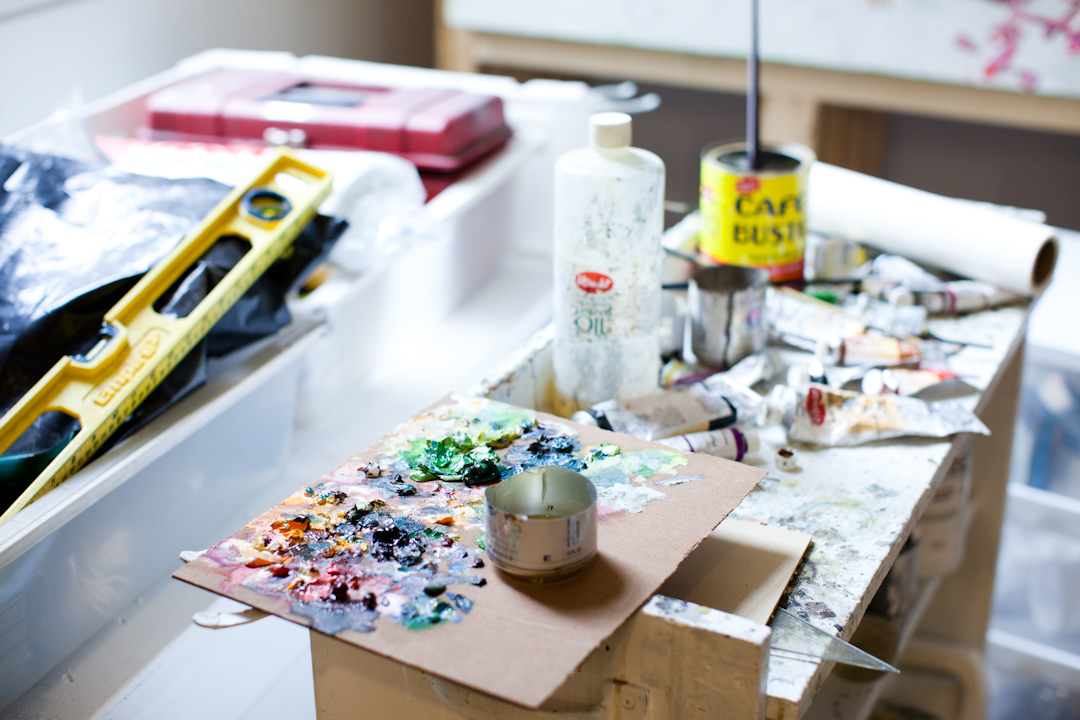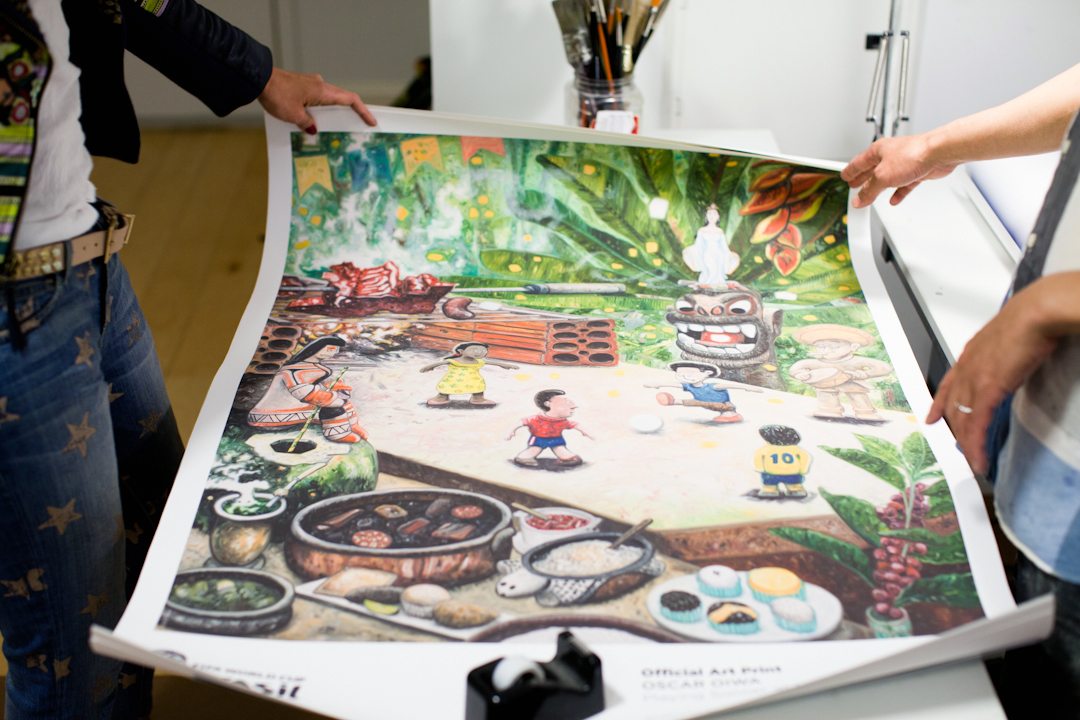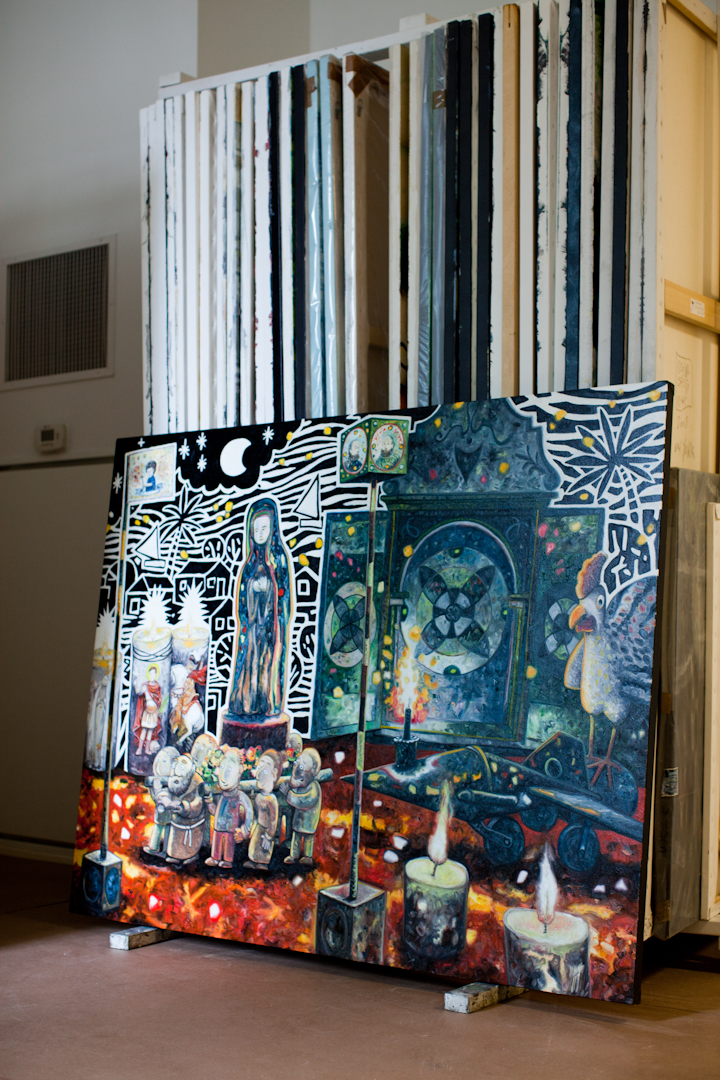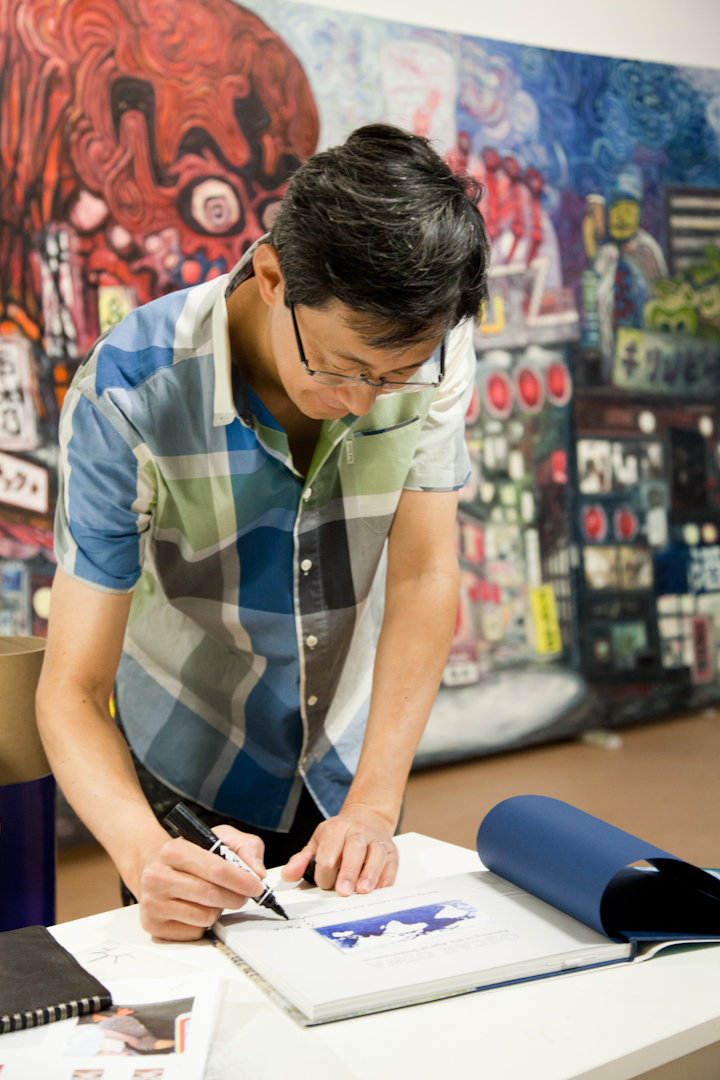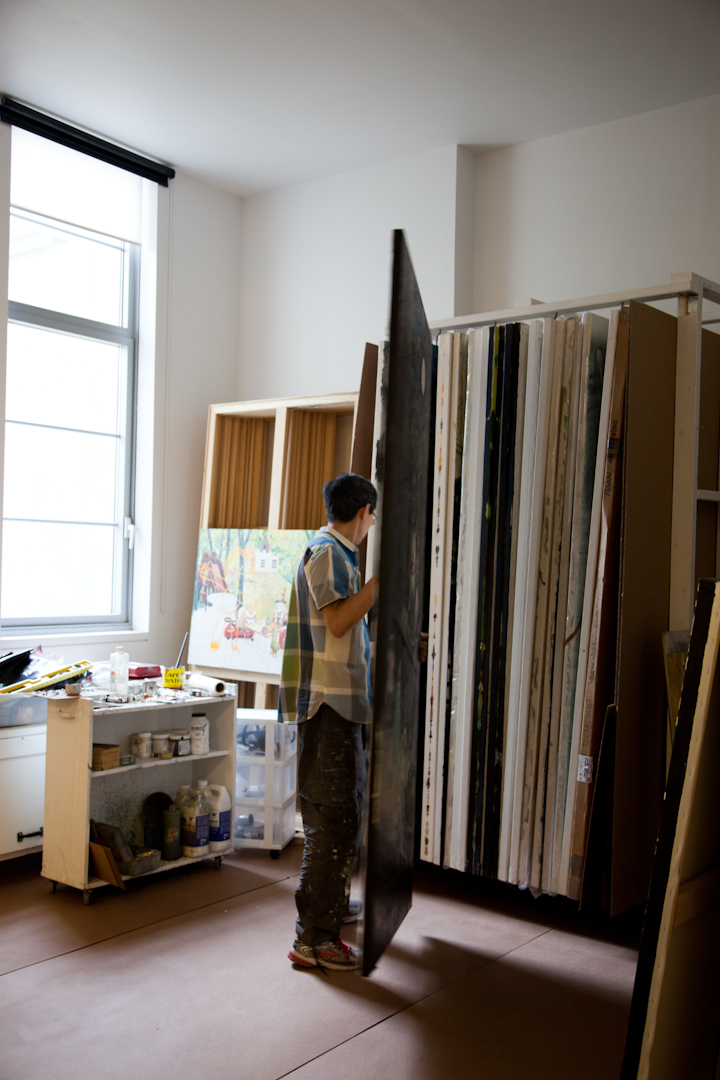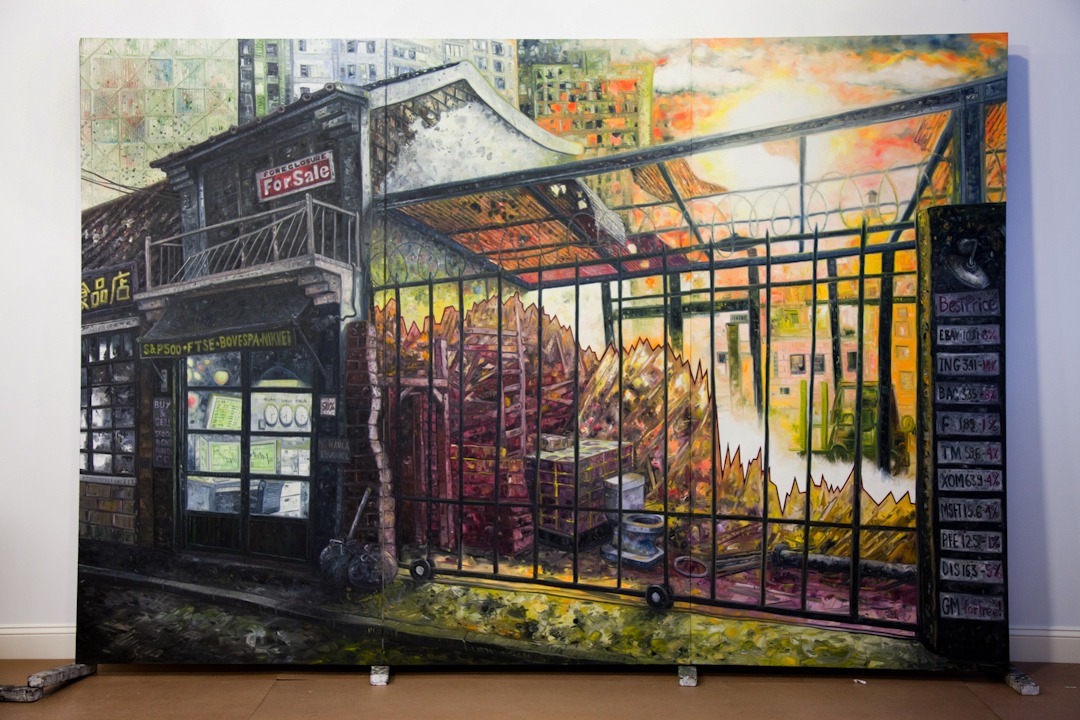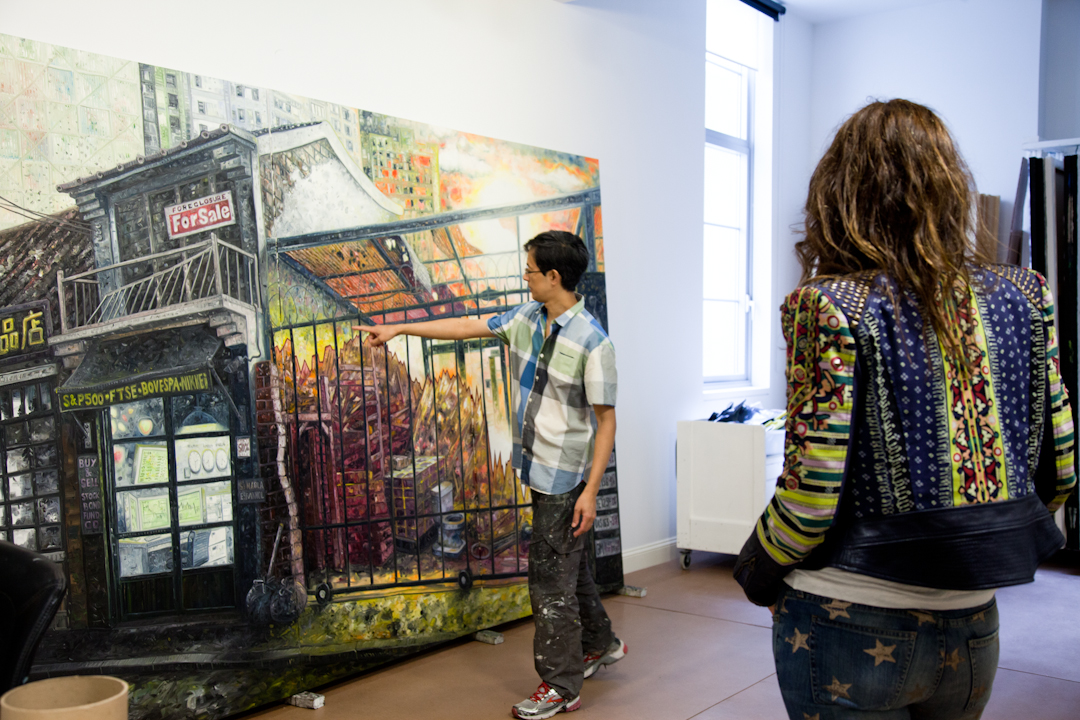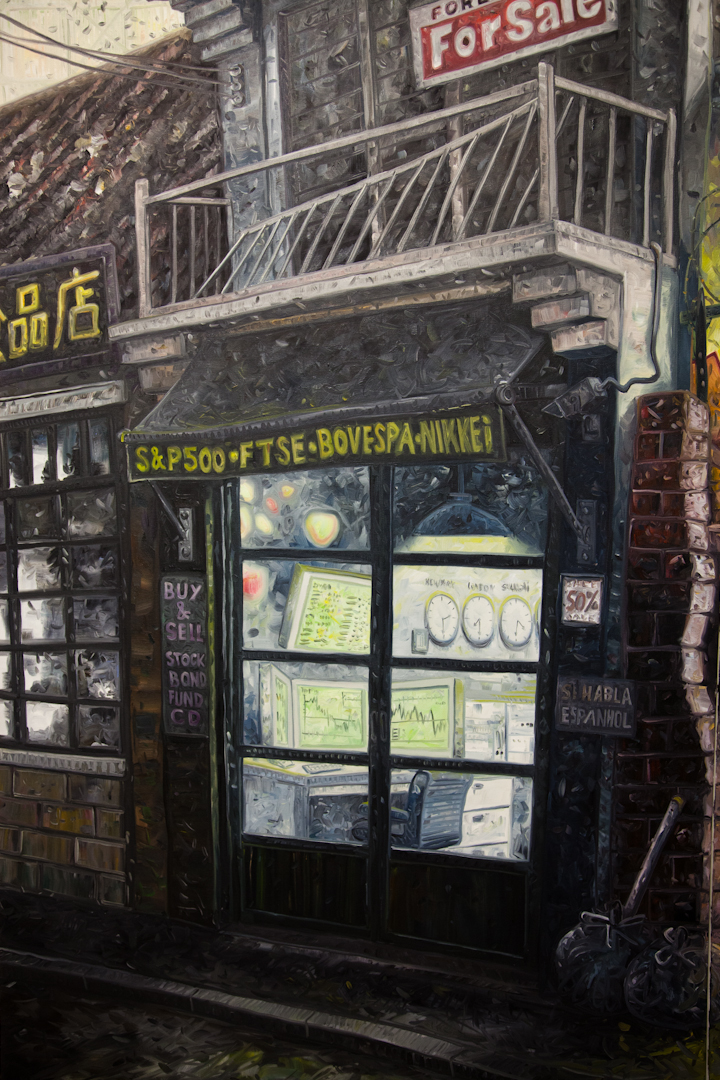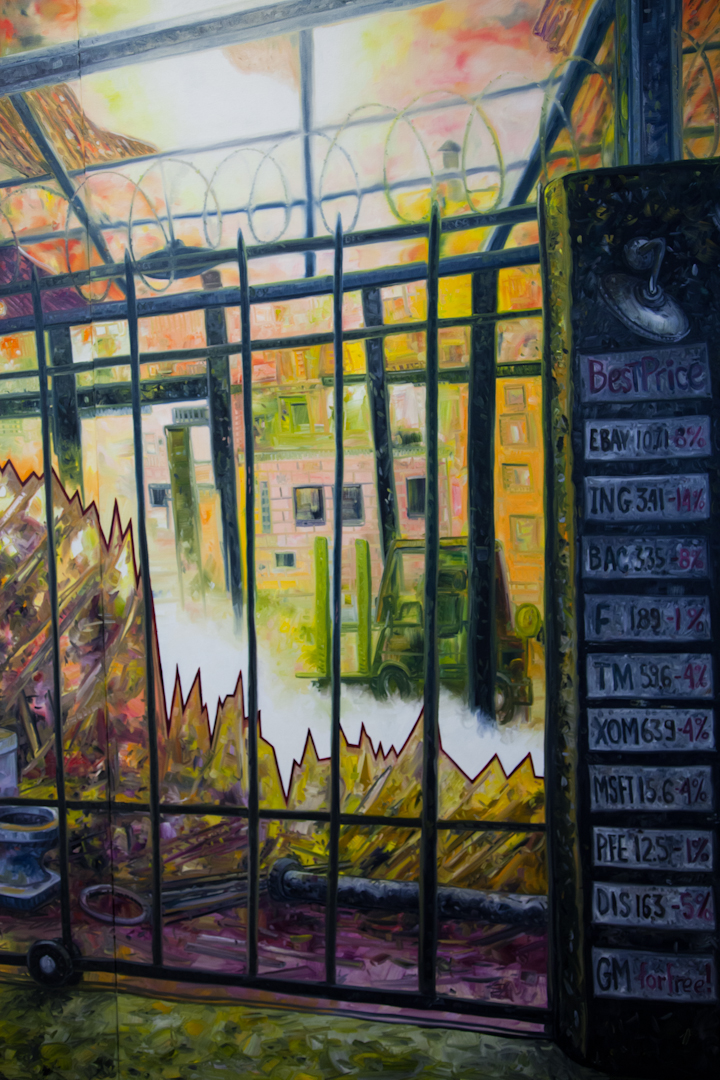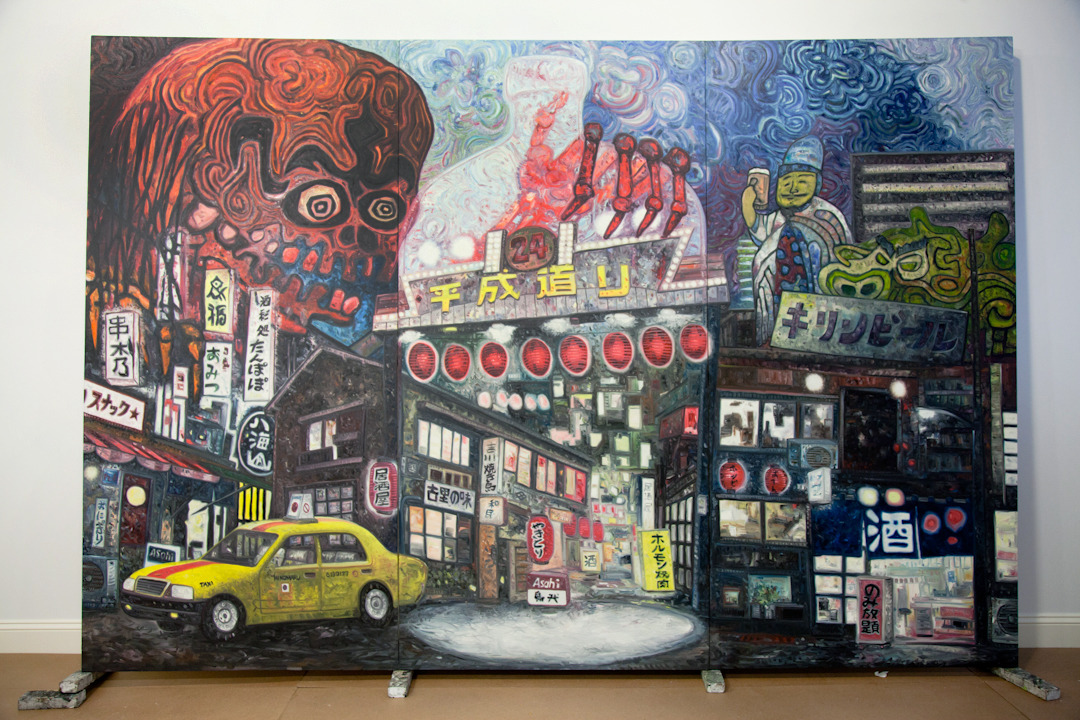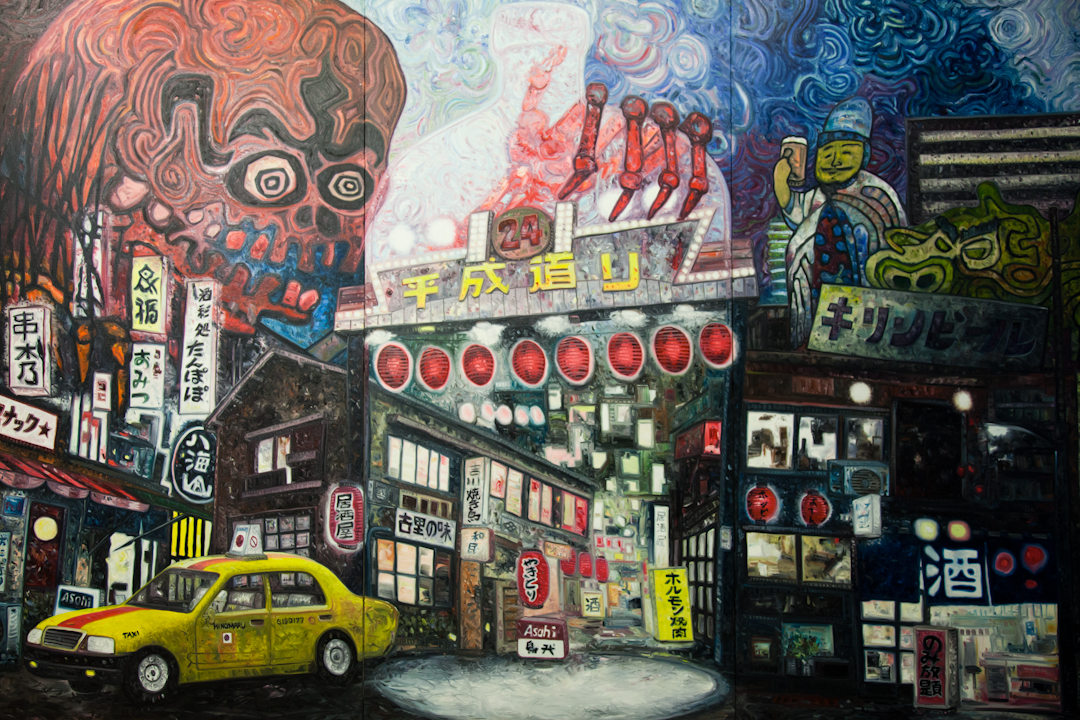Magic Realism in Oscar Oiwa's New York Studio
For a Latin woman like me, who grew up in Venezuela and came to live in the United States 15 years ago, literature in the genre of magic realism, is an indelible imprint in the fabric of my formative years. Writers like Gabriel Garcia Marquez, Isabel Allende and Jorge Amado took me to mundane scenarios (most of which seemed familiar in my mind, since they all happened somewhere in South America) but their stories were filled with eccentric characters, people with supernatural powers and all sorts of engrossing plots and subplots. It was only natural then, that when Oscar Oiwa’s invited me to his New York studio, I was curious to visit. Originally from Brazil and born of Japanese immigrants, Oscar splits his time between New York, Tokyo and Sao Paulo. He has had dozens of shows around the world and his works are in multiple collections including the Museum of Contemporary Art in Tokyo, the Montreux Jazz Festival Foundation, the National Museum of Modern Art in Tokyo, the Phoenix Museum of Art, the Prince Albert II of Monaco Foundation and many more.
Oscar and I next to the canvases that serve as the basis of the 2014 World Cup Poster that the FIFA commissioned from him
Some of his pieces are quite large and invite onlookers to become part of his magic realism-inspired paintings. In one of them, he has painted his own interpretation of the kitchen of Gabriela Cravo e Canela, the famous novel written last century by Jorge Amado, one of Brazil’s most prodigious writers. Some others are explorations of the globalized world and touch upon Oscar’s personal experiences: someone who has an intimate relationship with three countries that could not be more different in every aspect. Among what he showed me, there was a dark piece that ironically depicts a decaying city after the financial crisis of 2008 and a self-portrait in the context of the Japanese 2011 earthquake and tsunami, which severely damaged Tokyo and some of Oscar’s public art pieces. Another canvas shows the decline of the Japanese economy and of Japan as a world superpower.
I was particularly drawn to a more lighthearted piece composed of four panels that represented several aspects of Brazilian culture including typical food, soccer, deities, symbolism and of course, magic realism. It made me feel happy and also was quite relatable. By the same token, FIFA asked Oscar to license some of his art for the official posters that are to be used in connection with the 2014 World Cup, which is to take place in Brazil. I loved seeing such cheerful portrayal of a multicultural society which for so many years has been proudly represented by phenomenal soccer players. The limited edition print is available for sale here.








